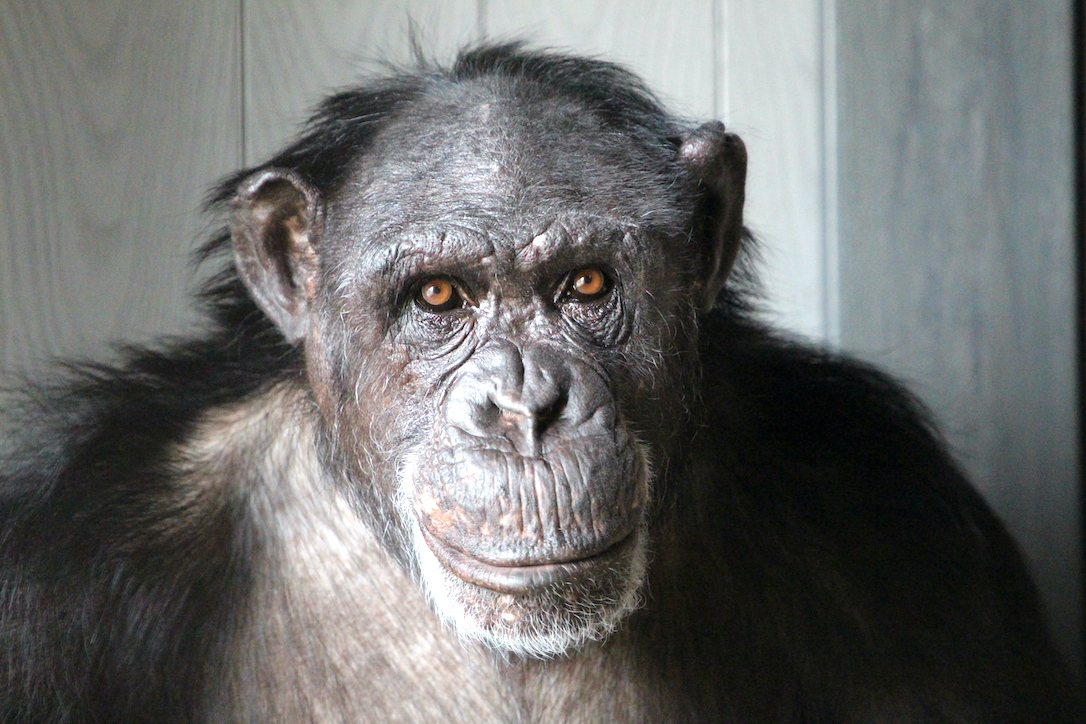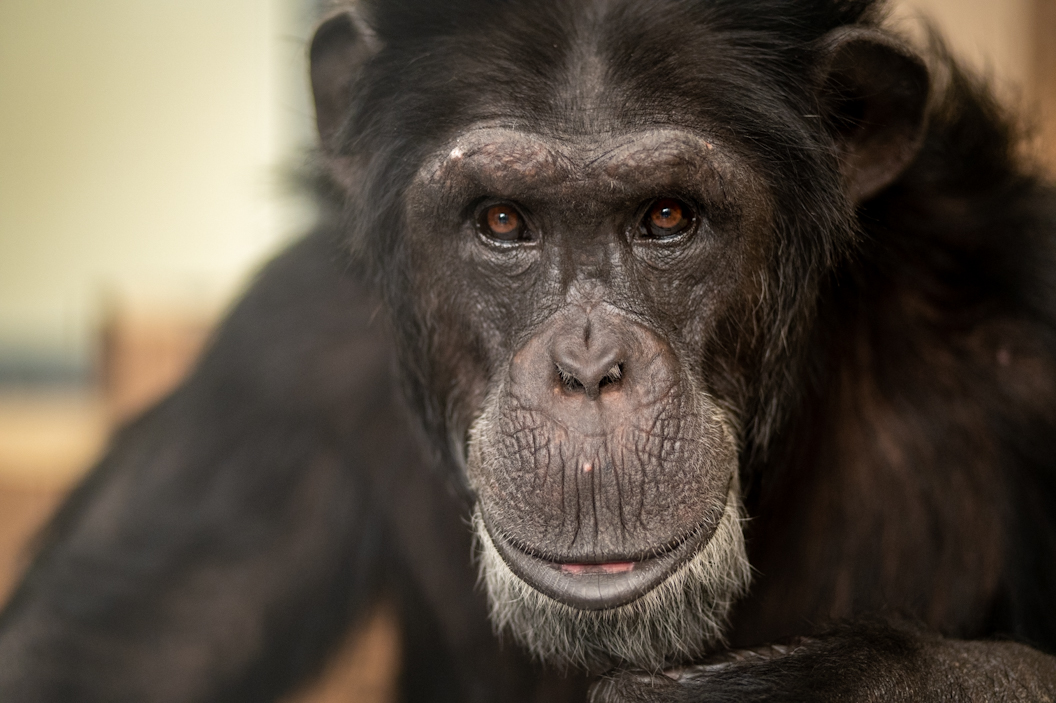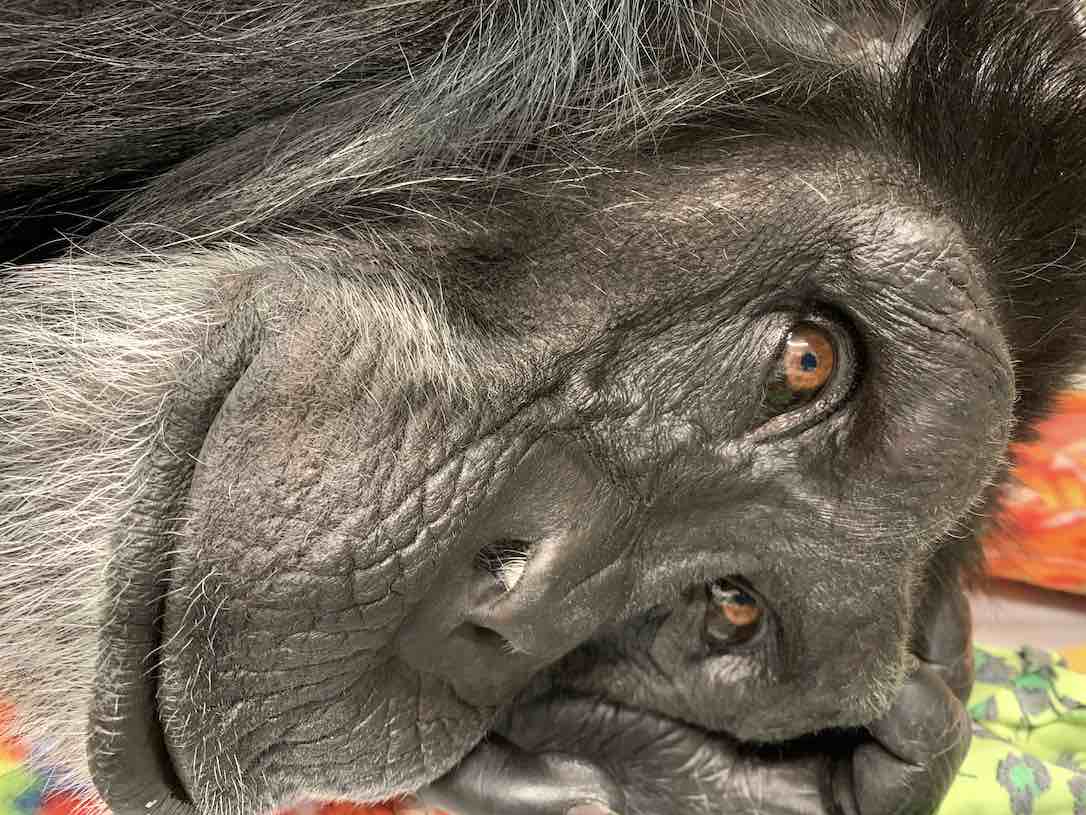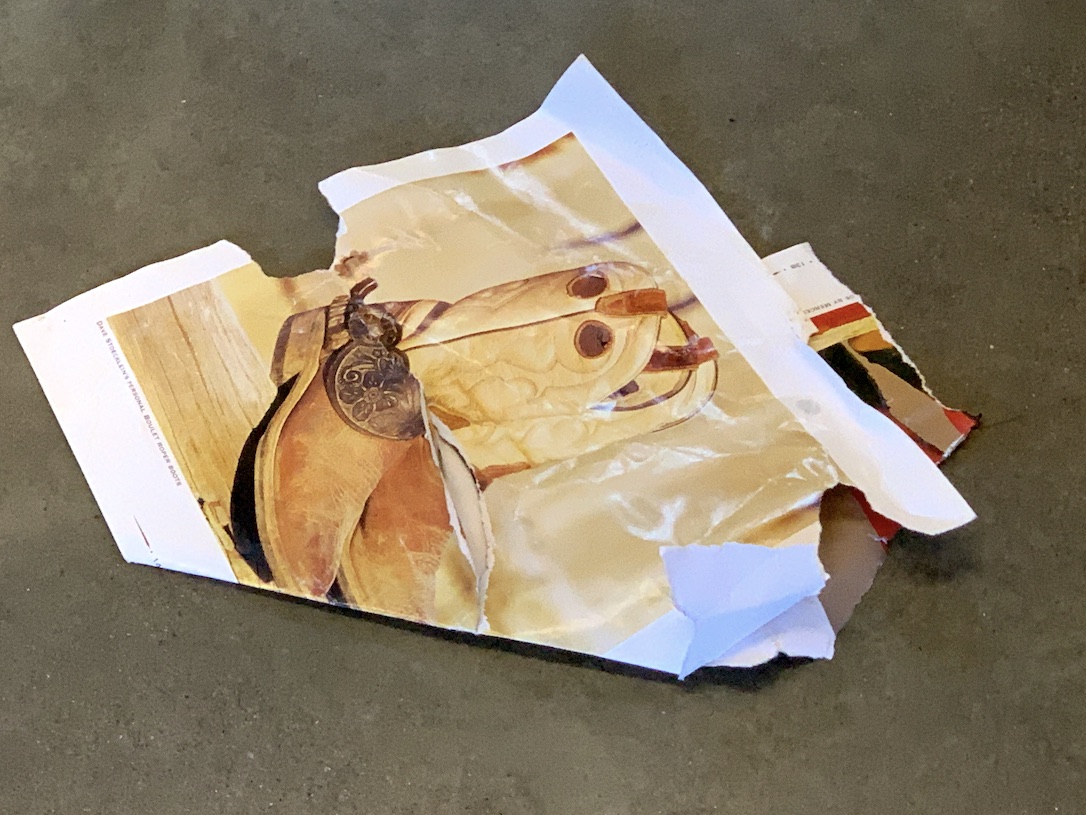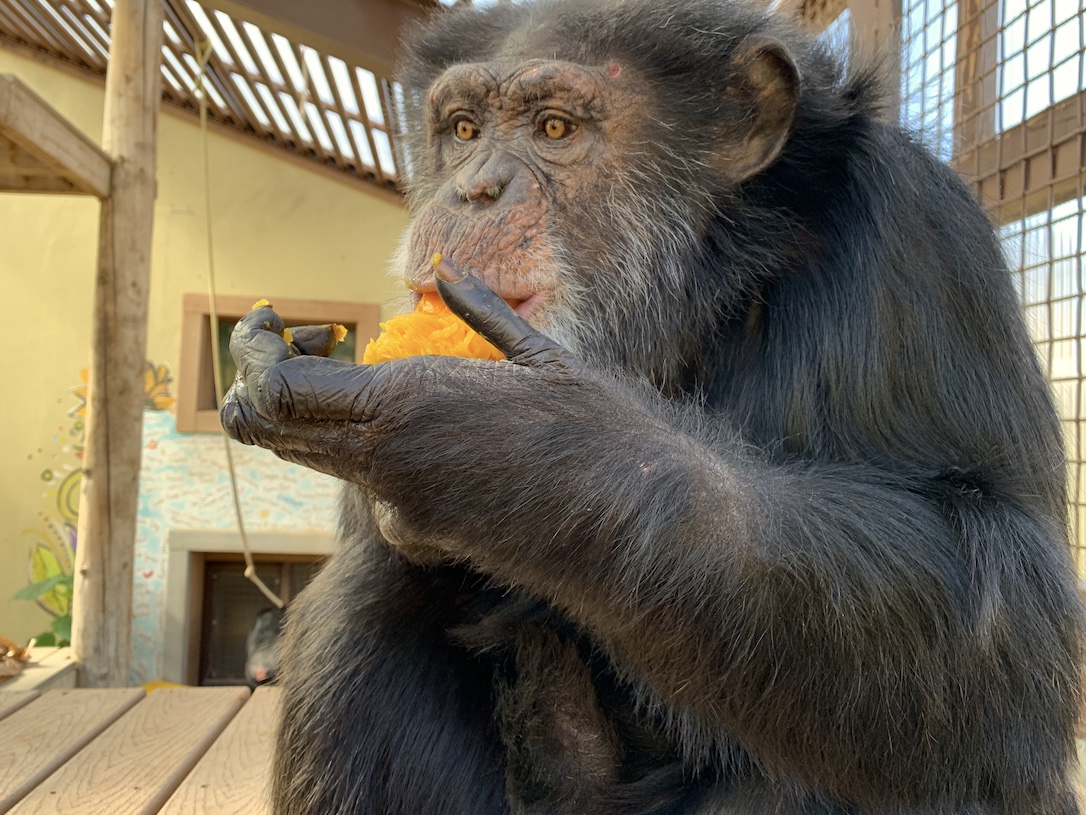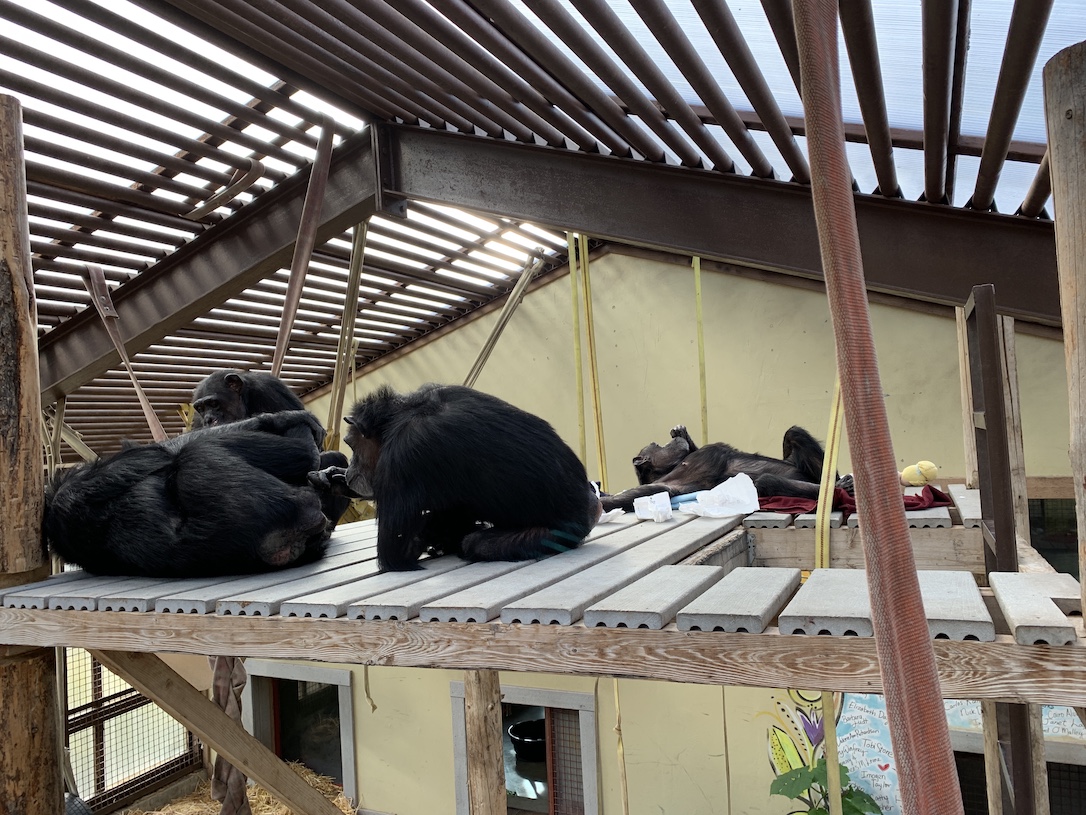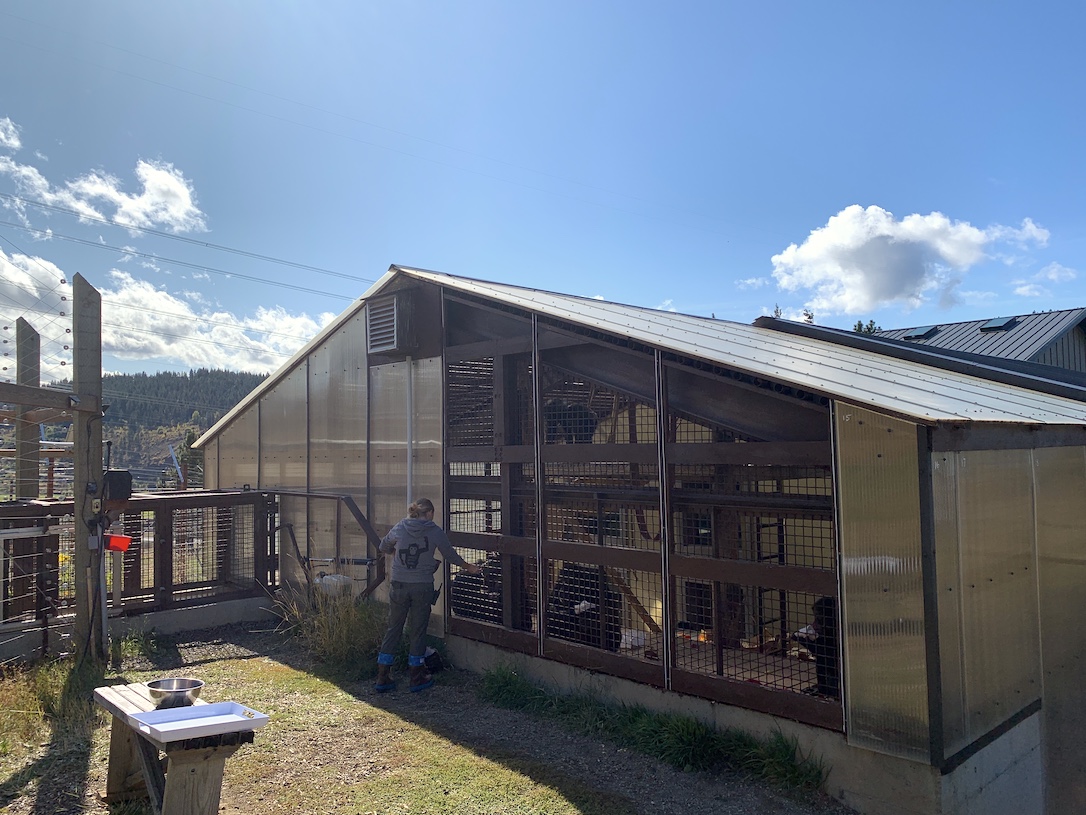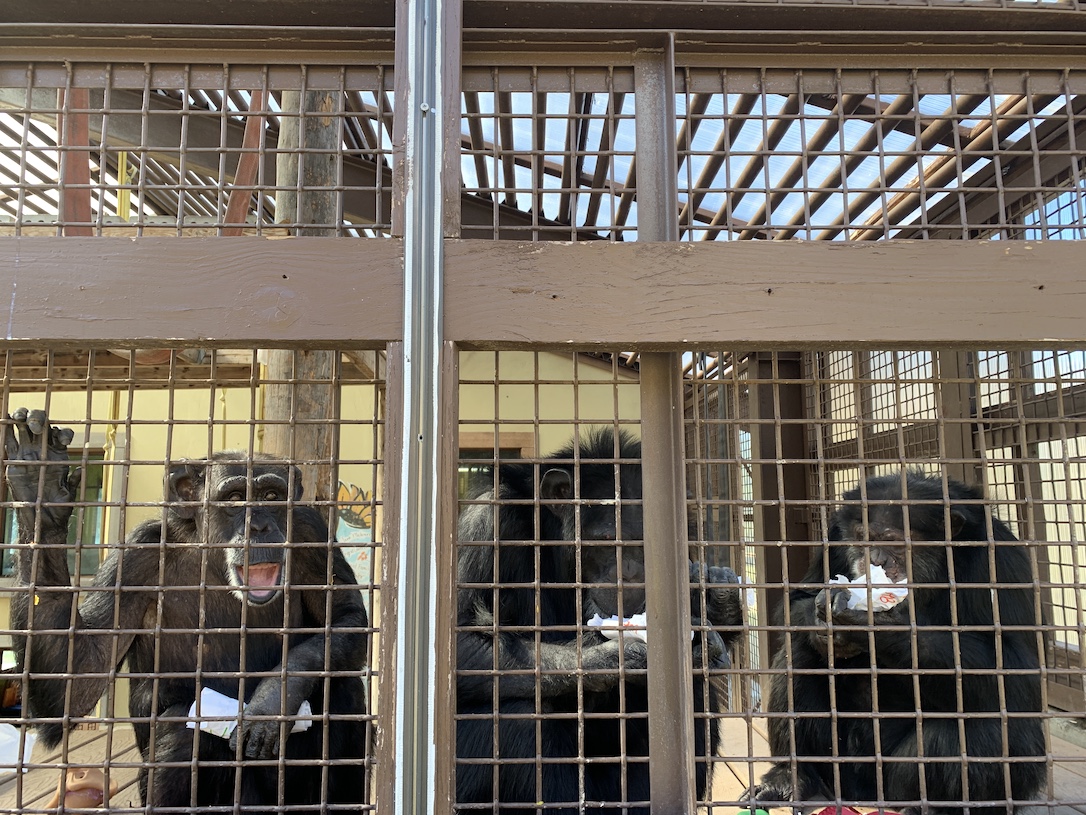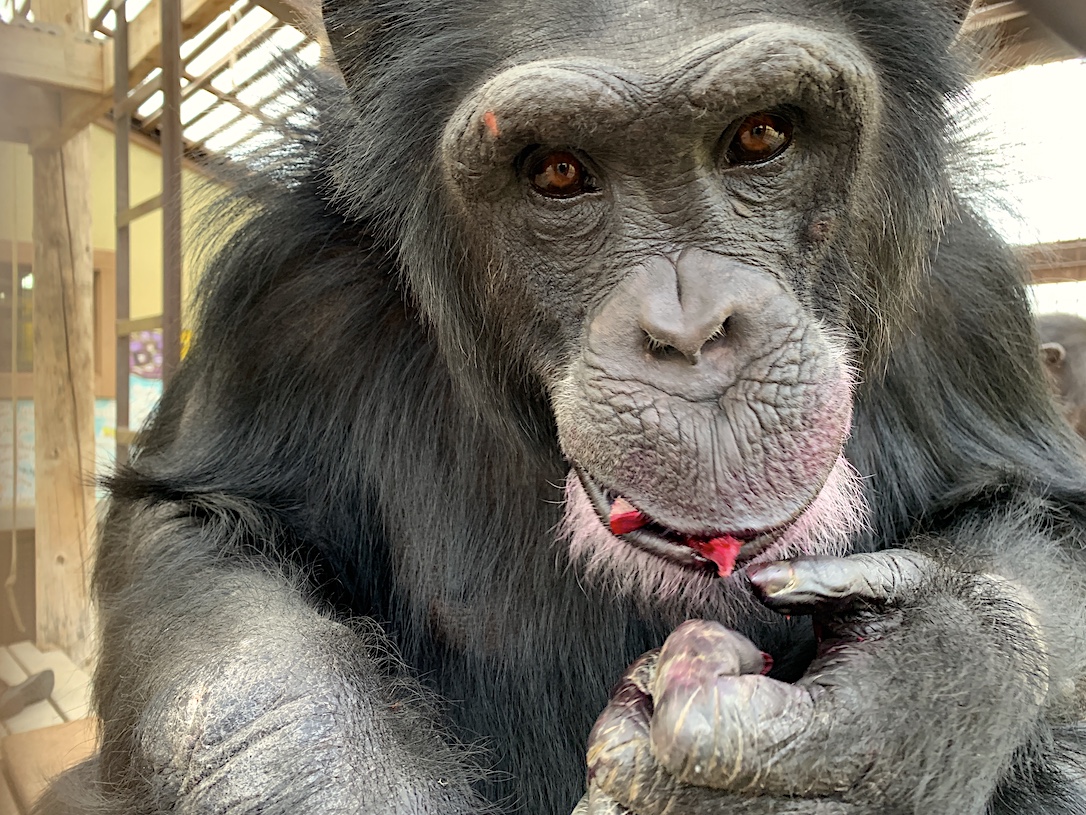I was initially drawn to chimpanzees for the same reason that people search for life on other planets: The belief that we could not possibly be alone. How strange would it be if, in this vast and complex web of living things, of a nearly infinite variety, we were the only ones with a consciousness of any significance? If we were the only ones that planned for the future, desired for that which we didn’t have, strategized for power, loved our friends and families, or appreciated beauty? If there was evidence of continuity to be found, surely it would be found in chimpanzees. And in many ways, the study of chimpanzees over the last hundred years has in fact been a century-long lesson in humility, for in nearly every domain of human virtue that we once claimed as uniquely our own, chimpanzees have shown at least some degree of proficiency: Tool use, language, cooperation, problem-solving, empathy, memory, perspective-taking…even politics, if politics could still be considered virtuous. All stand as evidence of a complex mind that, when viewed in light of our shared evolutionary history, must operate something like our own, must feel something like our own. Perhaps we are not alone, after all.
This emphasis on the social, cognitive, and ethical qualities that we value was in many ways a necessary correction to the thousands of years of human chauvinism ingrained in our intellectual and popular culture. We have been, in a sense, working to rescue chimpanzees from ourselves by elevating them, albeit reluctantly.
I must admit, though, that somewhere along the way my own perspective started to change. If we are honestly and openly curious about the intelligence and conscious experience of other animals, why search for only those qualities that we exhibit rarely, if ever? Why hold them to a standard that we can only hope to achieve on our best days? If we truly are not alone, we will certainly find them down in the muck with us, too. Because brains do not contain a one-way valve through which our more advanced capacities operate. Once acquired, these capacities are free to operate in every domain and in every direction, for better or for worse. Put simply, a complex brain can do bad things with greater complexity. A mind with the ability to cooperate can also cheat, and has reason to seek retribution against cheaters. A mind that can empathize can also betray. A mind that can long for something or someone is bound to become jealous and resentful. And a mind that can contemplate the future can be stricken with anxiety about things that do not and may not ever exist. Intelligence is not in and of itself a virtue, but merely a scaffold with which to build ever more elaborate behaviors and emotions of all kinds.
To be fair, authors of popular works of primatology have discussed all of these things in detail, from backstabbing political dramas to mother-daughter serial killers. But these lessons feel lost sometimes. So let me share a couple stories about the minds that inhabit this sanctuary and the ways in which their experience of the world is perhaps even closer to our own than we’d care to admit.
Jamie is an insecure leader. Leader isn’t even the right term, really. Alpha. The Boss. Decider of All Things. A leader inspires trust and support, and exerts power judiciously. A leader seeks stability and order, and strives to protect the less powerful. Jamie, on the other hand…
Jamie’s MO is simple: if she’s not getting what she wants, she either a) throws feces, or b) screams. Throwing feces is reserved for staff, volunteers, and visitors. Some chimps catch on pretty quickly to the fact that most humans would rather have their finger bitten off than be showered in fresh, wet poop. It’s so effective that we are powerless to extinguish the behavior. We encourage people not to react when chimps spit on them, because the reaction only reinforces the behavior. But try not reacting when feces gets in your hair or goes down your ear canal. She’s so aware of her power that sometimes all she has to do is make eye contact, then slowly direct her gaze to a nearby pile, and then once again lock eyes. Step away from the door controls or you and I both know what happens next. Being a sanctuary, our default position is to accommodate the chimps as much as possible, so we follow Jamie’s direction whenever we can. But really, what else are we going to do? On rare occasions, when circumstances required, we have made elaborate ponchos and helmets out of old blankets to withstand the fecal flak coming through the caging as we rushed to operate a door or retrieve an item within her range. But this makes her really mad, because she knows she’s been outmaneuvered. And that makes her feel powerless. And for Jamie, powerlessness is the worst of all feelings.
Screaming, on the other hand, is reserved for her chimpanzee family. Here’s an example: It’s dinnertime, and Jamie has received all of her meal. But Foxie has the gall to also want to eat. When Foxie takes her portion, Jamie summons a scream to wake the dead. Foxie has less than a second to decide whether she should abandon the food and run or take it and risk an aggressive conflict. More often than not, Jamie’s screaming elicits a group-wide melee, with Missy blindly taking Jamie’s side and the others trying in vain to stay out of the fray. Whether Jamie gets the food in the end or not is irrelevant – depriving Foxie was the goal.
Insecurity is a real crap sandwich. First of all, it feels awful. But on top of that it often makes you behave in ways that only feed back into a greater sense of insecurity. It’s the death spiral of emotions. The dynamics of Jamie’s group have changed since Jody’s death. It’s not like it was a fairy tale to begin with, especially back when Burrito was still a testosterone-driven tornado. But they had established a certain order, loose as it was. Jody’s absence should have made Jamie feel more secure, as she seemed to perceive Jody as her greatest rival. Jody was, after all, well-loved and respected by the rest of her group mates. But the vacuum left by Jody’s absence has only resulted in an uptick in Jamie’s, shall we say, darker side, one which our cooperative feeding training struggles to keep up with.
The problem with maintaining power through intimidation, volatility, and capriciousness is that no one is rooting for you to remain in power. What if they’re just waiting for you to slip up? What if they are even silently conspiring against you? All the more reason to remind them who’s in charge.
And down the spiral we go…
I’ve always maintained that if Jamie was a human and was not a member of my immediate family, I wouldn’t want anything to do with her. If any human treated me the way she treats those around her, I’d be out the door. But I love her. More than anything. Maybe more than any other chimp I’ve known, depending on the day you ask. Maybe it’s because she’s been treated so unfairly and remains imprisoned, and this is how she perseveres. Or maybe it’s because, since she’s not human, I’m able to appreciate her as a whole person with less judgment; to admire the directions in which her capacious mind has traveled in its efforts to find meaning and purpose. There’s a richness to Jamie that I can’t help but stand in awe of.
Willy B is a lot of things. He’s big, handsome, intimidating, sometimes playful, sometimes goofy, but mostly…anxious. Anxious and overwhelmed. He’s scared to walk on grass. He’s a wreck in most social situations. He often seeks refuge in quiet, familiar corners where he can just be alone, as if he just needs to press pause on the world for a while so his brain has a moment to settle.
The problem for Willy B is that he is a member of a species for which sociality is everything—for which friendships and alliances are currency. A male like him has to stake out a position in the hierarchy, and that requires one or both of the following: Being tough, or being social.
Willy B is not tough. He looks the part, but in 99% of the conflicts I’ve seen him involved in, he is the one running away screaming. If push comes to shove he can more than hold his own, but he doesn’t want to fight. He just wants you to think he could. And when the tables are turned on him, he usually hides behind someone stronger or braver who is willing to defend him as he prays for the fight to end.
Despite his social difficulties, Willy was fortunate to immediately make the one friend that really mattered: his alpha male, Cy. When they first met, Willy and Cy spent the first couple weeks trying to figure each other out. When they were together during introductions, one-on-one, their relative status was a tossup. But in the greater group, there was no question. Cy had a loyal, established group behind him, and plenty of social skills to boot. Willy had no choice but to submit. But it didn’t seem like something Willy had to work hard to accept. He really admires Cy. And he craves Cy’s attention. Spending time with another male, something he hadn’t been able to do in years, seemed to give Willy new life.
But dyadic relationships, as complicated as they are, are comparatively easy to navigate. There’s me, there’s you, and there’s us. That’s it. Add in a third person and suddenly there’s…them. Add in even more people and you create a dizzying patchwork of coteries, cliques, and communities. Circles within circles. An intelligent mind can’t help but start to ruminate on all the possibilities: What are they doing? Why are they doing it without me? Should I join them? Do they want me to join them? One theory holds that larger brain-body mass ratios evolved to help keep track of these complex social connections. At times this feels like the first frayed thread in the brain’s fabric, and still the most vulnerable to being torn.
Thanks in large part to Cy, Willy has a pretty firm lock on the #2 position in his group. But like Jamie, he can’t seem to leave well enough alone. He appears comfortable in one-on-one interactions with everyone, but as things get more complicated he gets overwhelmed, directing mild but persistent threats to the lower-ranking males in the group, Terry and Gordo. And if Cy isn’t giving him enough attention, or if—God forbid—Cy directs his attention to the other males at the wrong time, Willy launches into a self-defeating fit, seemingly choosing to blow the whole place up rather than attempt the difficult task of finding his own place in the group. In reality, no one has it out for him, and if he could just turn the volume on that big brain down for a second, and literally do nothing, he’d be fine. Instead, he short-circuits, explodes, and then wonders why it’s so damn hard to fit in.
If I ever get frustrated with Willy B, it helps to watch the home movies we have showing him in the laboratory nursery. There he is, in a set of toddler’s overalls designed to keep his diapers in place, looking around nervously for someone to hold him. It’s not that he never stood a chance—somehow, other chimps made it out with far superior social skills—but we each have our unique vulnerabilities. Maybe if Willy had been raised by his mother instead of technicians, if he had lived a life in the wild instead of a cage, he would have an easier time understanding other people. Or maybe not. We’ll never know. That he’s come this far is victory enough.
Twenty-five years ago, I began a life and career with chimpanzees with the hope of seeing what new and exciting thresholds they would cross, whether it be in art or technology, culture or cognition, in their race to join our virtuous circle. These days I am just as curious to discover how their own big brains have saddled them with inescapable bouts of sadness, anxiety, pettiness, jealousy, vengefulness, insecurity, and general confusion about how to exist in a hopelessly messy world. Because these are not qualities to be spoken of in hushed tones or swept under the rug in pursuit of discoveries more noble or virtuous. These, too, are signs of intelligent life.
And today I am even more certain of two things. First, we are most certainly not alone. And second, if big-brained aliens do ever visit us, they are sure to be carrying a lot of psychological and emotional baggage, too.
